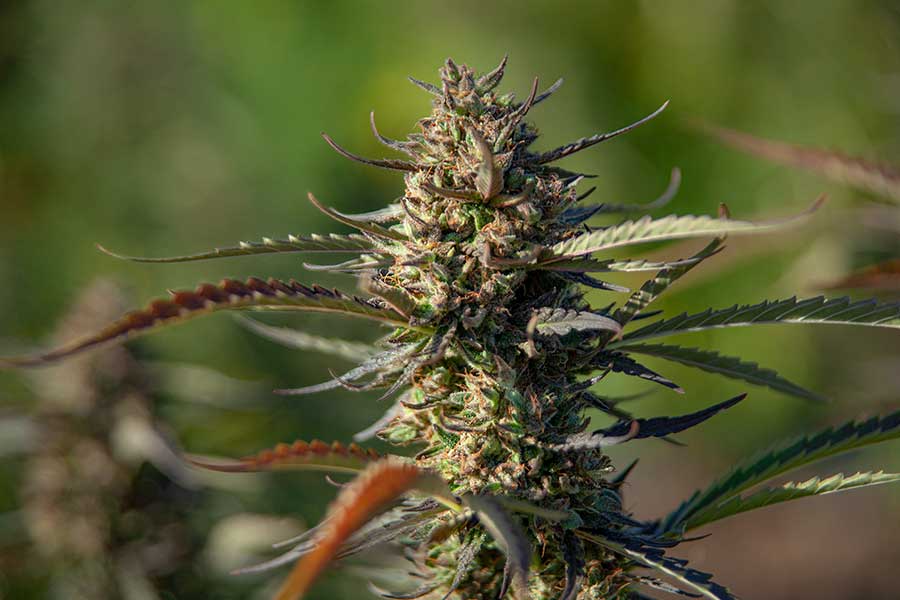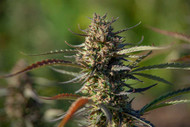THCA Vs. THCV: 4 Differences You Need to Know
May 2, 2023

Are you confused about the differences between THCA vs. THCV? If so, you’re not alone. With so many new compounds and cannabis products being released to the market, it can be hard to keep up with what each one does. That’s where we come in. Black Tie CBD wants you to be an educated consumer when purchasing cannabis products. We are transparent about all of our testing processes so customers can feel confident about the cannabis they get from us, whether it’s CBD, THC, THCA, or something else.
What is THCa?
Known as the precursor to THC, tetrahydrocannabinolic acid (THCA) is THC before it becomes psychoactive. THCA has a similar molecular structure to that of Delta9 THC except for one key difference: THCA has an extra carboxyl group, making it non-psychoactive in its original state. Once it undergoes decarboxylation, however, THCA loses its extra carboxyl group, which activates its ability to induce a “high.”.
What is THCV?
A lesser known cannabis compound, tetrahydrocannabivarin (THCV) is often referred to as the weight loss cannabinoid. In contrast to its THC and THCA counterparts, which are known for being appetite stimulants, THCV may do the opposite. While THCV could induce mild psychoactivity, it will typically be less so than THC. This depends on the dose and the strain, but in general, most people find that they get a significantly less intense “high” from this compound.
Differences Between THCA vs. THCV
While both THCA and THCV share several properties and offer a host of potential health benefits, there are certain differences between the two that you should be aware of.
1. Chemical Structure
The chemical structures of THCA and THCV is the primary difference between these two cannabis compounds and is the basis for how they interact differently with the endocannabinoid system. As mentioned earlier, THCA is the acidic precursor to THC. This means its chemical structure is almost identical to that of THC except for the fact that it contains one extra carboxyl group. Once THCA undergoes decarboxylation, it loses this extra carboxyl group and essentially turns into usable THC.
THCV, on the other hand, is a completely different cannabinoid. This minor cannabinoid is referred to as the analog of THC. THCV is present in extremely low levels (at or around 1%). While it has a similar structure to THC, THCV has two fewer carbon atoms in the hydrocarbon tail. This shorter hydrocarbon tail makes all the difference when it comes to how strong of a “high” the compound will yield. Fewer carbon atoms make THCV interact differently with cannabinoid receptors. This results in a significantly weaker high, even at higher levels of concentration.
2. Different levels of psychoactivity
In its raw, unaffected form, THCA does not have psychoactive properties. Heat and treat it with light, however, and THCA will lose its extra carboxyl group, effectively transforming into THC. While THCA will eventually get you “high” once it has been decarboxylated, the way it does so is quite different from THCV. In theory (and often in practice), THCA could result in equal levels of psychoactivity as Delta 9 THC. Conversely, THCV will never get you as high.
The breakdown of the different chemical structures between THCA vs THCV explains the varying degrees of psychoactivity between these two compounds. The main takeaway here is that while THCV can produce similar effects THC, these effects tend to be much weaker, if they are even experienced at all.
3. Forms of consumption
How people consume THCA vs THCV is a main differentiator between the two cannabinoids. Those who want to preserve THCA in its raw form and reap the benefits before it becomes psychoactive may enjoy eating the raw buds, using THCA in topical form, using the THCA powder, or applying it as a transdermal patch.
Burning, vaping, or smoking THCA, however, enables users to reap the psychoactive benefits of the product, which transforms the entire experience. Some of the bestselling THCA flowers available at Black Tie CBD include:
- GUSHERS (INDOOR) THC-A Hemp Flower, a loud, semi-sweet, doughy-berry mixed aroma with strong undertones of gas.
- JEALOUSY (INDOOR) THC-A Hemp Flower, a dense, exotic flower with notes of pine, citrus, vanilla, and funky haze.
- ICE CREAM CAKE (GH) THC-A Hemp Flower, a cakey-doughy, sharp lemon aroma with hints of gas. It’s like eating vanilla ice cream cake with lemon zest.
It is important to note that once you burn or vape THCA, it will become psychoactive. While this is great for people who want to get “high,” it may be a deterrent for those looking to stay away from feeling these intoxicating effects.
As for THCV, users are free to consume it any which way they choose. Dab or smoke THCV freely without concern for how it will transform. As mentioned above, the euphoric sensation will be mild if it is felt at all.
With more knowledge comes a better experience. Take what you’ve learned and apply it when you shop for high quality CBD, THC, and THCA at Black Tie CBD today!

